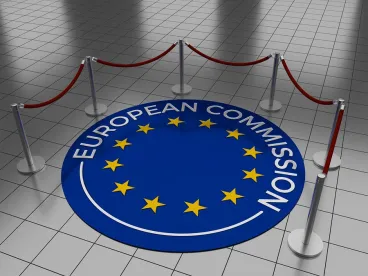OVERVIEW
On 19 March 2020, the European Commission adopted a temporary framework that allows Member States to grant certain State aid to businesses to help them face the economic and financial consequences of the Coronavirus (COVID-19) health crisis. In the wake of this decision—and in a record time of 48 hours—the Commission authorised the implementation of three French aid schemes on 21 March 2020 and two German aid schemes on 22 March 2020.
IN DEPTH
On 19 March 2020, the European Commission adopted a temporary framework for State aid to support the economy amidst the consequences of the Coronavirus (COVID-19) outbreak. This temporary framework is based on Article 107(3)(b) of the Treaty on the Functioning of the European Union (TFEU), which allows for State aid “to remedy a serious disturbance in the economy of a Member State.”
To remedy the serious economic disturbance across the European Union, the temporary framework provides for five types of aid:
-
Aid in the form of direct grants, selective tax advantages and advance payments: Member States will be able to set up schemes to grant up to EUR 800,000 to a company to address its urgent liquidity needs.
-
Aid in the form of State guarantees for loans taken by companies from banks: Member States will be able to provide State guarantees to ensure banks keep providing loans to the customers who need them.
-
Aid in the form of subsidised public loans to companies: Member States will be able to grant loans with favourable interest rates to companies. These loans may help businesses cover immediate working capital and investment needs.
-
Aid in the form of safeguards for banks that channel State aid to the real economy: Some Member States plan to build on banks’ existing lending capacities and use them as a channel for support to businesses—in particular to small and medium-sized companies. The temporary framework makes clear that such aid is considered as direct aid to the banks’ customers, not to the banks themselves, and gives guidance on how to ensure minimal distortion of competition between banks.
-
Aid in the form of short-term export credit insurance: The framework introduces additional flexibility on how to demonstrate that certain countries exhibit non-marketable risks, thereby enabling short-term export credit insurance to be provided by the State where needed.
The temporary framework thus allows for targeted support to the economy while limiting distortions of competition in the internal market.
For this purpose, the framework links the subsidised loans or guarantees to businesses to the scale of their economic activity, by reference to their wage bill, turnover or liquidity needs, and to the use of the public support for working or investment capital. The aid should therefore help businesses to weather the downturn and to prepare a sustainable recovery.
The Commission also proposed on 20 March 2020 the activation of the general escape clause of the Stability and Growth Pact, which enables Member States to depart from their normal budget requirements in a coordinated and orderly manner.
The expenditures to which the general escape clause applies must be linked to events beyond the control of governments, such as the COVID-19 pandemic. Such expenditures include State aid granted on the basis of Article 107(3)(b) TFEU.
This clause has never been activated since its adoption in 2011 and must still be endorsed by the European Council.
Only two days after the adoption of the temporary framework, on 21 March 2020, the Commission authorised three separate French support schemes:
-
Two schemes enabling the French public investment bank Bpifrance to provide State guarantees on commercial loans and credit lines, respectively, for enterprises with up to 5,000 employees
-
A scheme to provide State guarantees to banks on portfolios of new loans for all types of companies. This is direct aid to the companies that will enable banks to quickly provide liquidity to any company that needs it.
The French plan is expected to mobilise more than EUR 300 billion of liquidity support for companies affected by the economic impact of COVID-19.
The Commission found that the French measures are in line with the conditions set out in the temporary framework. In particular, the measures cover guarantees on loans with a limited maturity and size. They also limit the risk taken by the State to a maximum of 90%. This ensures that support is swiftly available at favourable conditions and limited to those who need it in the current situation. To achieve this goal, the measures also involve minimum remuneration and safeguards to ensure that the aid is effectively channelled by the banks to the beneficiaries in need.
The Commission concluded that the measures are necessary, appropriate and proportionate to remedy a serious disturbance in the economy of a Member State, in line with Article 107(3)(b) TFEU and the conditions set out in the temporary framework. On this basis, the Commission approved the measures under EU State aid rules.
On 22 March 2020, the Commission also authorised under the temporary framework two German support schemes. The support schemes will allow the State-owned Kreditanstalt für Wiederaufbau (KfW) to provide liquidity, through intermediation of private banks and savings banks, in the form of subsidised loans:
-
A loan program covering up to 90% of the risk for loans for mid-sized and larger companies. Eligible loans may have a maturity of up to 5 years and a principal of up to EUR 1 billion per company, depending on the company’s liquidity needs.
-
A loan program in which the KfW can participate with private banks to provide larger loans as a consortium. For this scheme, the risk assumed by Germany may cover up to 80% of a specific loan but not more than 50% of a company’s total debt.
The Commission also authorised a Danish guarantee scheme on 21 March 2020, and Italian and Portuguese aid schemes on 22 March 2020. The Commission is likely to authorise aid schemes adopted in other Member States in the coming days.





 />i
/>i

